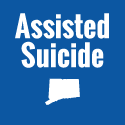Why Pursue Survey if it Makes Students Feel Defensive?
The front page of Monday’s Waterbury Republican-American reads:
Litchfield High School senior Hannah Arnold plans to be one of the 406 students who take part in an anonymous ‘Profiles of Student Life’ survey March 13, but that doesn’t mean she’s happy about the [sic] some of the questions she’ll be asked. “It’s an invasion of privacy,” she said after school on Friday.
The school board’s mandate was to study the prevalence of substance abuse, but the survey covers a wide variety of topics such as home life, violence (both directed at others and at oneself), eating disorders, sexual activity, and concepts of sexuality and gender. (You can read the sample questions here.)
I do understand why it was designed this way: at first glance the issues may appear tenuously connected, but it is not surprising that risk-taking behaviors are correlated. Drug and alcohol abuse doesn’t happen in a vacuum; a successful intervention strategy must consider the whole person.
Nevertheless, I am personally, totally sympathetic to Miss Arnold’s “this is none of your business” reaction. In the face of legitimate resistance and distrust, going forward is problematic. Neither the Housatonic Valley Coalition Against Substance Abuse or the Litchfield Prevention Council support doing the survey. Kelly Garden, a member of the latter, explained,
High school students have openly said they would not be honest with these questions. I haven’t found a parent yet that endorsed this.
A letter to parents from superintendent Deborah Wheeler states, “The value of a study of this kind depends upon the participation of every student.” I agree. The survey’s integrity seems already compromised beyond repair: nearly 20% of the 500 eligible students have opted out. Some who remain are doing so under protest, like Miss Arnold. Even parents who did not opt their children out expressed concerns about exposure to certain messages and the difficulty of ascertaining students’ honesty about intimate personal details. The information could prove very enlightening, if it were trustworthy. However, I remember being a middle-schooler and I can vouch that, if I felt I had to answer a bunch of dumb questions, I would be tempted to write outrageous responses to skew the results (I can’t claim not to have been immature at times, but I had a keen sense of outrage when schools or teachers wasted my time).
Preserving children’s beautiful innocence is a parent’s prerogative, honor, and solemn duty; that bears repetition. Unfortunately I am not sure I agree with the Prevention Council’s assertion that children in grades 7 and up are necessarily too young for basic familiarity with the topics, although it is alarming that the very first sample question, How old are you? lists 11 or younger as a choice. Remember the old PSA phrase, “Talk to your children about…before someone else does”? It’s a cliché for a reason. Still, the wisest course here would be for the school district to drop it.















